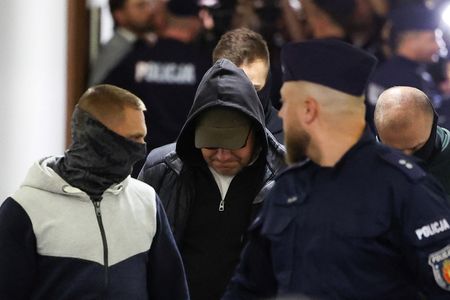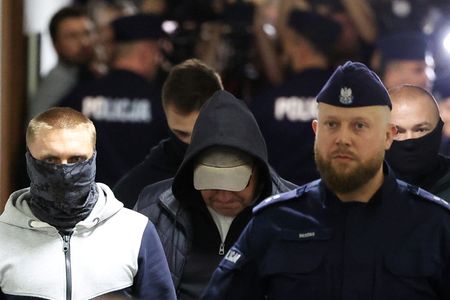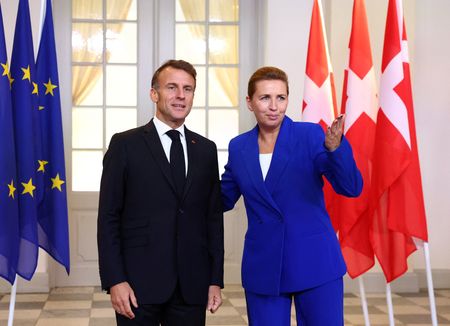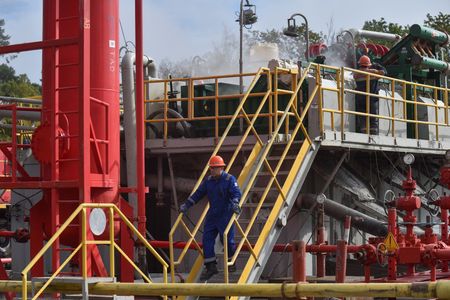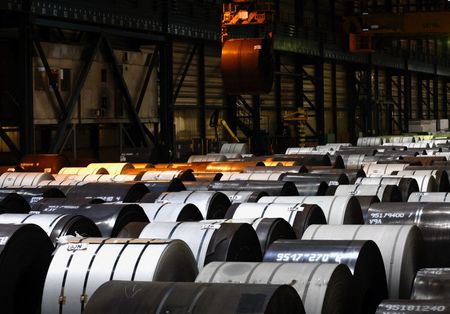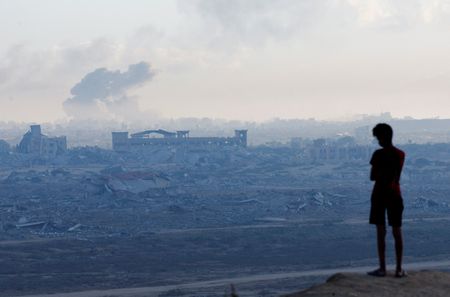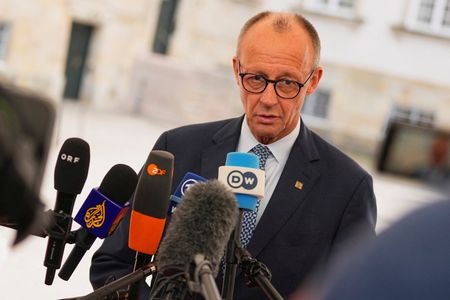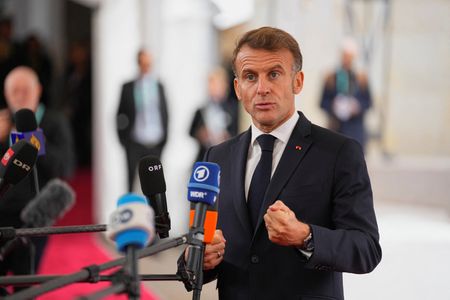By Anna Koper and Anna Wlodarczak-Semczuk
WARSAW (Reuters) -A Ukrainian diver wanted by Germany over his alleged involvement in explosions in 2022 in the Nord Stream pipeline that largely severed Russian gas supplies to Europe has been detained in Poland, prosecutors and his lawyer said on Tuesday.
Described by both Moscow and the West as an act of sabotage, the explosions marked a major escalation in the Ukraine conflict and squeezed energy supplies on the continent. No one has taken responsibility for the blasts and Ukraine has denied any role.
Germany’s top prosecutors’ office said Polish police had acted upon a European arrest warrant for Volodymyr Z. that it had issued.
SUSPECTED OF PLANTING EXPLOSIVES ON PIPELINES
Its statement said the qualified diver was one of a group of people who were suspected of renting a sailing yacht in the German Baltic Sea port of Rostock and planting explosives on the pipelines, running from Russia to Germany, near the Danish island of Bornholm in September 2022.
He faces accusations of conspiring to commit an explosives attack and of “anti-constitutional sabotage”, the prosecutors added.
Volodymyr Z.’s lawyer Tymoteusz Paprocki said he was detained in a town near Warsaw.
In a statement, Paprocki said: “My client has done nothing wrong and pleads not guilty. My client has not committed any crime to the detriment of Germany.”
Paprocki said Volodymyr Z.’s defence would fight against his transfer to Germany, arguing that the execution of the European arrest warrant against him was inadmissible given Russia’s war in Ukraine.
“The attack on Nord Stream infrastructure concerns one of the pipeline’s owners, Gazprom, which directly finances the military operations in Ukraine,” he said. Gazprom is Russia’s state gas giant.
If he is extradited by Poland, Volodymyr Z. would be brought before an investigating judge with Germany’s Federal Court, the German statement said.
ARREST IN ITALY
In August, Italian police arrested a Ukrainian man suspected of coordinating the attacks. The man, identified only as Serhii K., plans to take his fight against extradition to Italy’s highest court after a lower court ordered his transfer to Germany.
The blasts wrecked three out of four Nord Stream pipelines, which had become a controversial symbol of German reliance on Russian gas in the wake of Moscow’s invasion of Ukraine.
Russia blamed the U.S., Britain and Ukraine for the blasts, which largely cut Russian gas off from the lucrative European market. Those countries have denied involvement.
Germany, Denmark, and Sweden all opened investigations into the incident, and the Swedes found traces of explosives on several objects recovered from the explosion site, confirming the blasts were deliberate acts.
The Swedish and Danish investigations were closed in February without identifying any suspect.
(Reporting by Anna Koper, Anna Wlodarczak-Semczuk, Pawel Florkiewicz, Friederike Heine, Ludwig Burger; Writing by Alan Charlish; Editing by Alison Williams)

